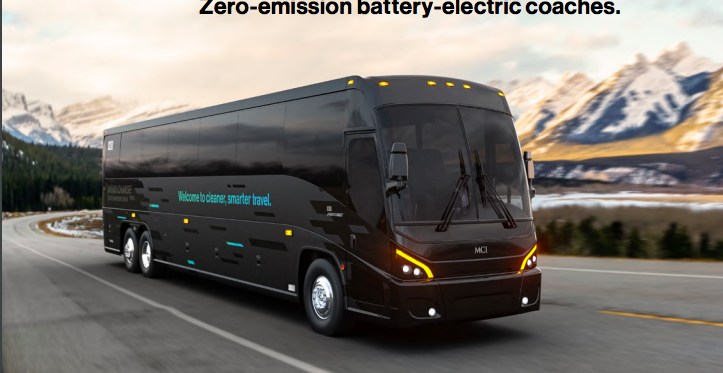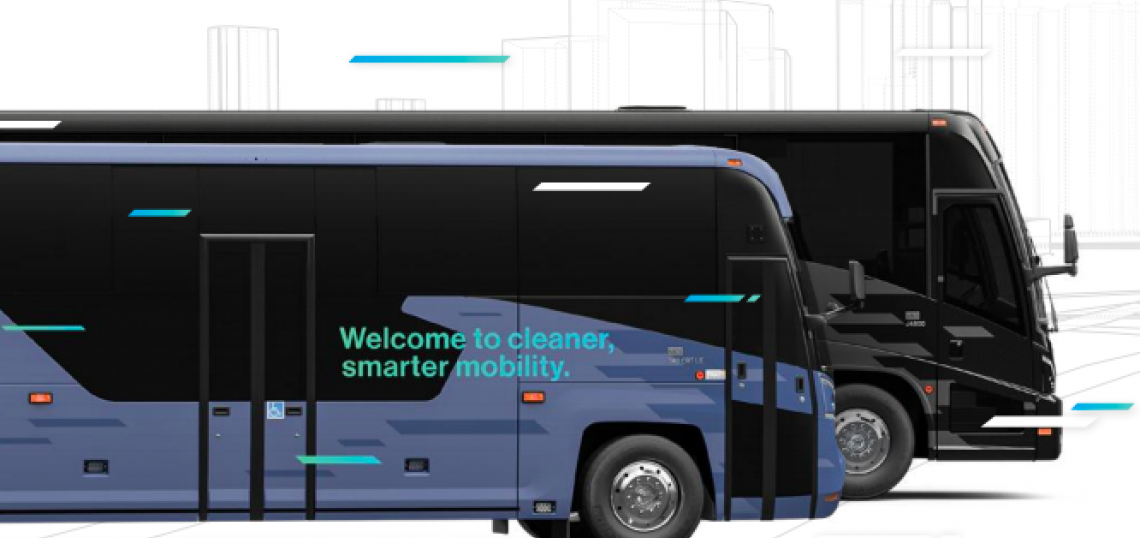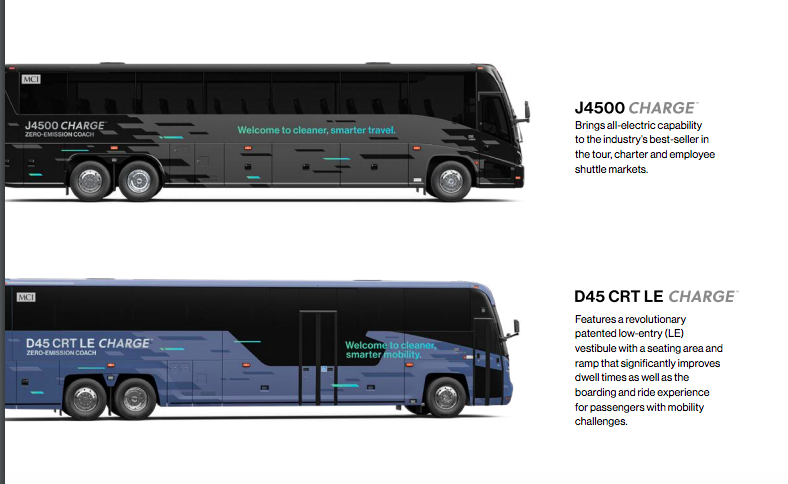A federal grant will allow the Atlanta-Region Transit Link Authority, or ATL, to swap out a fleet of aging diesel buses for cutting-edge electric models that will save the agency hundreds of thousands of gallons of fuel annually and keep hundreds of tons of carbon emissions from Atlanta’s skies, officials announced today.
The Federal Transit Administration awarded the ATL system $5.47 million to buy 10 battery-electric commuter coaches that provide cleaner, quieter transit options for the region’s Xpress Commuter Service.
The electric buses will be operated out of a facility in Clayton County, replacing 10 diesel buses from 2004, according to ATL officials. Initially, they’ll provide commuting routes from Clayton, Coweta, Fulton, and Henry counties into downtown and Midtown.
 “The D45 CRTe LE Charge is a low-floor model bus that allows easier boarding and enhanced ADA accessibility for riders,” according to ATL reps. Courtesy of MCI
“The D45 CRTe LE Charge is a low-floor model bus that allows easier boarding and enhanced ADA accessibility for riders,” according to ATL reps. Courtesy of MCI
Xpress’ 27 routes serve 12 counties in metro Atlanta, carrying more than 1.8 million passenger trips annually to and from major employment centers between downtown and Perimeter Center.
ATL’s was one of 49 projects to receive funding as part of FTA’s competitive Low-No Program, which supports no-emission bus transit and prioritized applicants with an environmental justice component this year, according to ATL reps. (A portion of the grant will help support the Xpress system’s workforce development programs.)
“These electric coaches provide numerous benefits,” ATL executive director Chris Tomlinson said in today's announcement, “including helping us improve fleet reliability, reducing our long-term maintenance needs, improving air quality, reducing noise pollution in the communities we serve, and eliminating the need for 87,000 gallons of fuel while reducing 901 tons of carbon emissions.”
The regional transit authority partnered with MCI, the Atlanta-based nonprofit Center for Transportation and the Environment (CTE), and Atkins on their application.
MCI manufactures the zero-emissions buses soon to be seen on Atlanta freeways: the D45 CRTe LE, the only federally tested and approved electric commuter coach that’s currently available.
• Concepts emerge for MARTA's rapid bus system up Ga. Highway 400 (Urbanize Atlanta)







